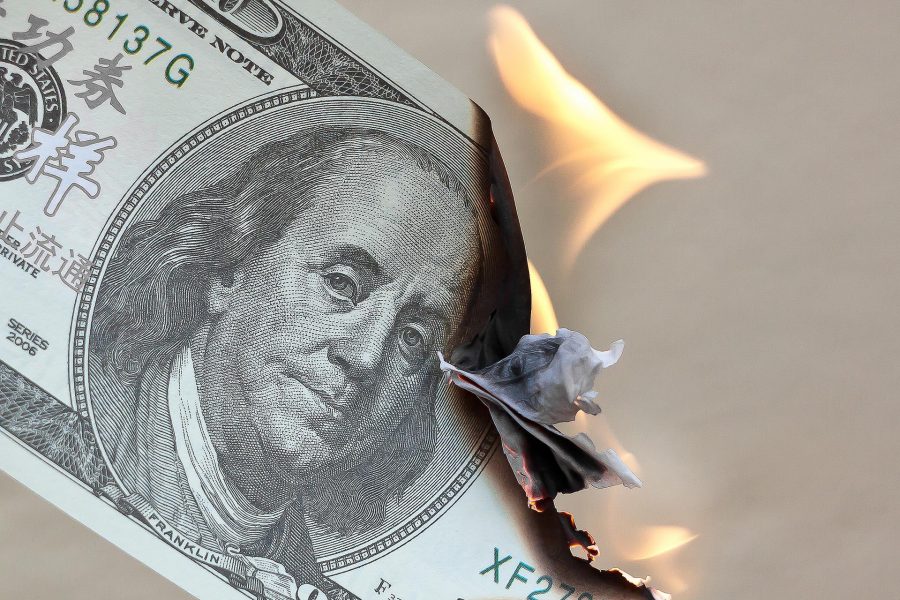The President imagines that the federal budget is driving toward a fiscal cliff because tax revenues are too low, and the rich are not paying their fair share. Such accusations may make good political talking points, but they are demonstrably false.
Let’s start with his vacuous accusation of tax fairness. The current top income tax rate is 37 percent, but including all surcharges, Medicare taxes, and state income taxes, the top total government tax rate is around 50 percent of people’s income. If he really believes his claims that the tax system is unfair, Biden must believe that it is fair for the government to take more than one-half of someone’s income.
His fairness rhetoric also perpetuates the fallacy that the rich are not paying taxes, which the IRS’ own data demonstrate is simply not true. According to the latest IRS Statistics of Income (SOI) data, the top 0.1% earned 14.3% of the nation’s adjusted gross income (AGI) but paid 24.7% of total income taxes paid. The top 1% earned 26.3% of the nation’s adjusted gross income but paid 45.8% of total income taxes paid. Put more simply, the rich pay a higher proportion of the nation’s taxes relative to their share of income that they earned.
In fact, the IRS data also demonstrate that the current tax system is steeply progressive. While the average federal tax rate on the bottom 50 percent of taxpayers is 3.3 percent, the average federal tax rate on the top one percent is 25.9 percent.
The data clearly demonstrate two essential facts: (1) revenues are around the long-term average – there is not a revenue problem; and (2) the rich are paying a lot in taxes. The federal government is hurling towards a fiscal cliff, consequently, because our political leaders continue to overspend.
Between 1975 and 2019 total government spending, on average, was around 20 percent of GDP. The country ran persistent budget deficits, however, because revenues were around 17 percent. While spending has fallen from the unprecedented peacetime level of nearly 31 percent following the COVID-19 pandemic in 2020, President Biden proposes in his budget plan to keep spending at an elevated 24 percent.
The President’s desired spending spree includes:
- Guaranteed childcare from birth to kindergarten, which is an attempt to create a new costly entitlement program at a time that Social Security and Medicare are already careening toward insolvency.
- More spending on affordable housing that will exacerbate the problem because it does not remove the restrictive zoning regulations are keeping supplies artificially low and prices artificially high.
- Mortgage relief credit programs that will increase demand further into a supply constrained housing market.
- More federal spending on colleges despite the reality that the expanded federal money has been connected to excessive increases in tuition rates
- More spending that, essentially, expands Medicaid in states that have not chosen to do so. Not only does this override basic federalism, but there are also sound reasons for not expanding the program. Medicaid infamously underpays hospitals and a rising problem of hospitals going out of business due to expanded Medicaid is worsening the problem of declining healthcare access.
If the past is prologue, these new programs will fail to achieve their lofty goals and will only undermine future economic growth. Worse, while understating the economic damage caused by his proposed tax increases to cover these expenses, the President expects revenues to only reach nearly 20 percent of GDP. While the adverse economic consequences from these tax increases will likely cause revenues to fall short of these expectations, these overly optimistic revenue estimates still fall short of the desired new spending. Consequently, President Biden is proposing trillion-dollar deficits for years to come.
The interest payments on our current deficit are already becoming the largest discretionary budget item (larger than defense) in the federal budget. Adding trillions more to this unsustainable situation is fiscally irresponsible, to say the least. Consequently, future generations will be spending billions of dollars annually to pay off this debt, which will jeopardize their financial well-being.
While the bad news from the President’s proposed budget continues, these proposals exemplify his failings. Rather than staving off the fiscal crisis facing the country, he is proposing a budget that would all but guarantee a future fiscal catastrophe.
Luckily, it is unlikely these proposals will be implemented given the current political divide in Washington. However, these proposals present a warning that should be heeded. The time for fiscal responsibility has long passed. And the longer we delay, the harsher the consequences will be.
Dr. Wayne Winegarden is a senior fellow in business and economics at the Pacific Research Institute.


